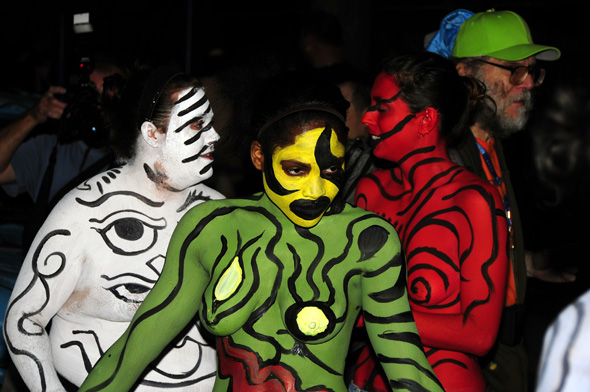
Photo: Barry Kass.
Making the familiar strange, and the exotic familiar
Social Anthropology explores the cultural grounding of social life. By studying people who are 'not like us' — whichever group of people it is that 'we' as researchers might belong — anthropologists learn about the surprising differences in everyday life around the world. In doing so we try to explain this difference through a recognition of the underlying sameness between peoples. Anthropologists argue that those traits which make us human are more enduring than the local and historical differences which tend to splinter us apart. Otago offers a range of interesting and challenging study options within Social Anthropology. We offer courses in Asian and Pacific cultures, reproduction, the anthropology of money, rites of passage, death studies, health studies, food and society, cultural politics and courses in anthropological technique and theory. Learn about other groups of people and, in the process, find out more about yourself!
Why Study Social Anthropology?
Anthropology will broaden your understanding of the human condition and the way in which this is changing around the world. What are the patterns in which people organise their lives? How do ideas of difference and sameness come about? How does the movement of people through a globalised world impact on the meaning and experience of culture? Life as an anthropologist means that you visit many other parts of the world, ask major questions about human variation and human difference, and study some of the leading issues surrounding different social, economic and political patterns. Anthropology gives you the academic tools to create meaningful connections with a wide diversity of peoples. You will learn to engage with cultural groups ethically and to explain social life through systematic questioning and critical analysis.
“An Otago Anthropology degree gave me knowledge, skills and a more holistic perspective to analyse complex social issues. This is invaluable for my work with community and government organizations evaluating social programmes.”
Sue Carswell (BA Hons I, PhD, Otago) Research and Evaluation Consultant (specialising in criminal justice research)
Anthropology has been taught at Otago University as a major for the Bachelor of Arts since 1966. The major normally takes three years and involves a minimum of nine papers (162 points) in the subject. We also offer a BA (Hons) that includes more papers and takes four years to complete. For those students who do not want to major in the subject but would like to pick up some Anthropology papers as part of their degree, we also offer the minor made up of five papers (90 points).
Two first year papers provide an introduction to Social Anthropology:
In ANTH103 you will be introduced to the broad discipline of Anthropology, with lectures on both Archaeology and Social Anthropology. The relationship between these different branches of Anthropology will be explained, along with some history of the discipline, basic concepts, and the principal means of conducting anthropological research. In ANTH 105 using global and local examples, as well as ethnographic research by social anthropologists, you will examine systems of kinship, the importance of gifts and exchange, rites of passage, and local organisation in order to study how social hierarchies, political organisation, ethnicity religion and globalisation have developed.
At the second and third year levels of the degree, you will begin to specialise in the areas of Social Anthropology that interest you the most. At second year we teach about Pacific societies, contemporary issues in Anthropology, and the politics of ethnographic representation. At third year we offer papers about labour and society, cultural politics, grieving and ritual, new reproductive technologies, the anthropology of money amongst others. These subjects lead on to our strong postgraduate programme in which students may do the Postgraduate Diploma in Arts, a Master of Arts, or a PhD.
